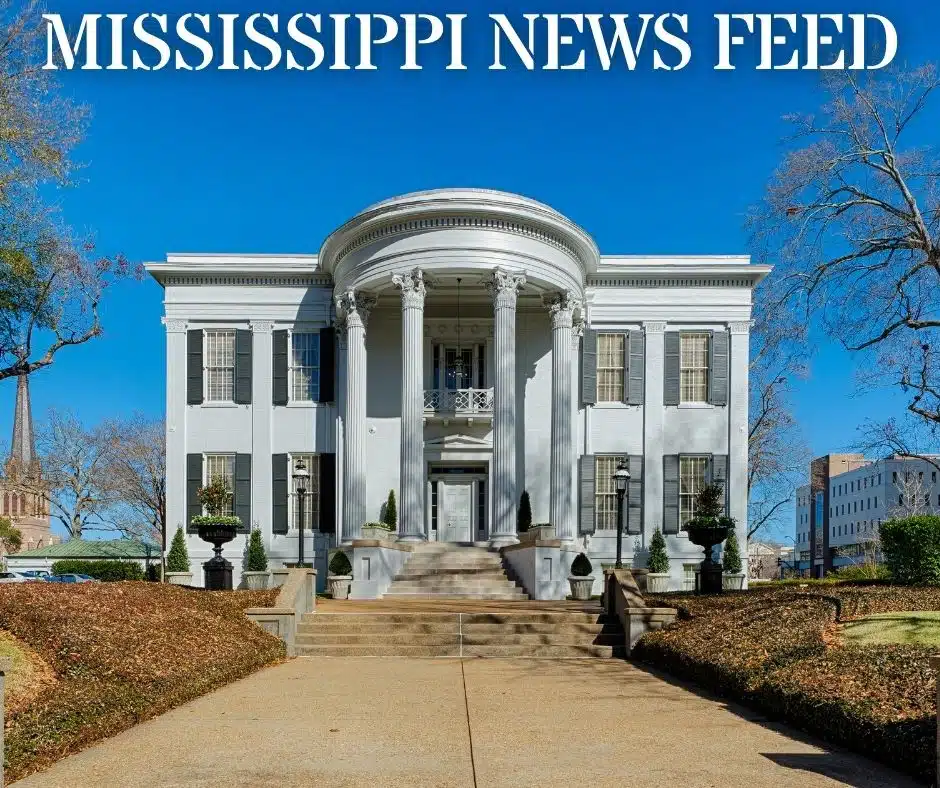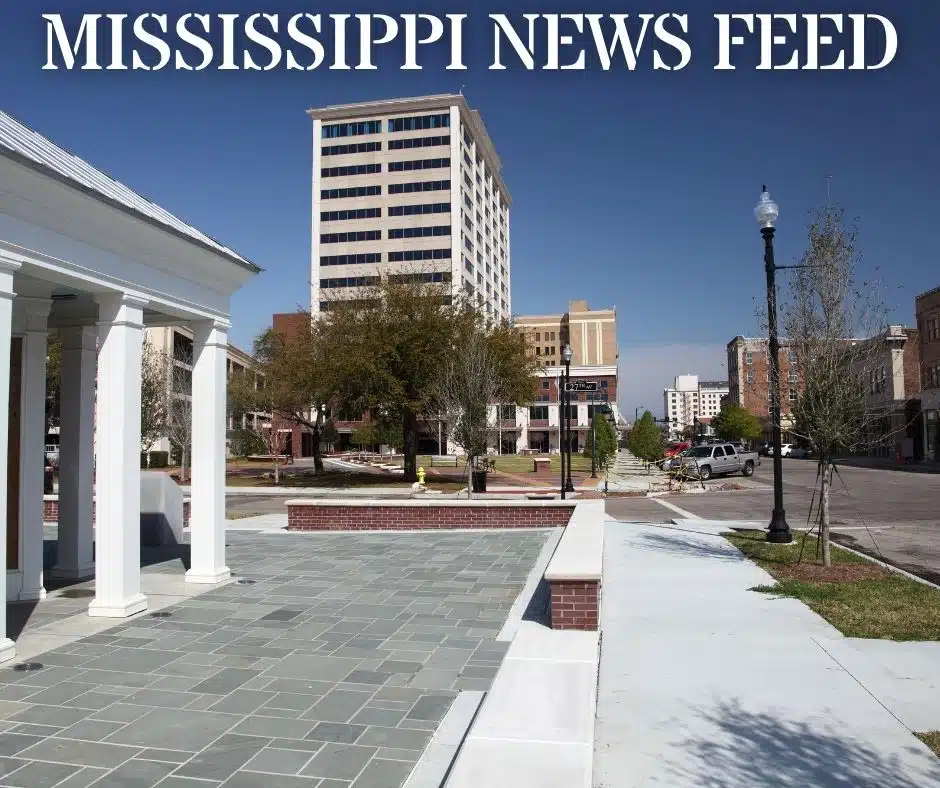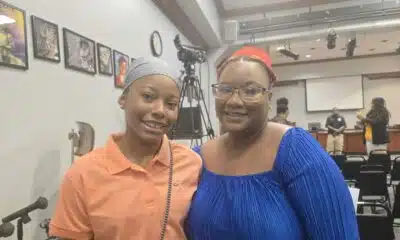Magnolia Tribune
Mississippi, Medicaid, and Mister Softee
Advocates suggest that expansion will be inexpensive, improve poor people’s health, and save rural hospitals. Unfortunately, these claims crumble under scrutiny.
In 2009, Oregon’s Democratic Senator Ron Wyden told the Wall Street Journal, “Medicaid is a caste system. It is unfair to poor people and it is unfair to taxpayers.” Paraphrasing Wyden, the article said Medicaid, “makes it hard for physicians to take care of the most vulnerable in society.”
Wyden was correct in 2009. His words remain correct today.
However, nine months after that article was published, Congress passed the Affordable Care Act (ACA), which included a massive Medicaid expansion. Since then, 40 states and D.C. have agreed to the expansion, with heavy pressure for the remaining 10–Mississippi included–to fall in line.
Advocates suggest that expansion will be inexpensive, improve poor people’s health, and save rural hospitals. Unfortunately, these claims crumble under scrutiny.
Even still, legislators will find it difficult to resist Medicaid expansion for the same reason that people watch Facebook videos while driving and argue ferociously with nasty strangers on Twitter (“X”). It’s the same reason a tinkly melody lures me outside to buy ice cream from Mister Softee when my cardiologist has told me to lose weight. (Mississippians can substitute “Blue Bell” for “Mister Softee.”)
Like Facebook, Twitter, and Mister Softee, the ACA’s authors crafted the Medicaid expansion to be irresistible to state legislators—even those who agree that the program is unfair to poor people and taxpayers. To understand how, let’s start with some history.
The ACA became law in 2010, but from 2007 to 2009, much betting in Washington focused on a different proposal, “Wyden-Bennett” (named for Wyden and Utah’s Republican Senator Robert Bennett). Far more radical than the ACA, Wyden-Bennett attracted support from Republicans, including Mississippi’s Trent Lott.
Wyden-Bennett would have shifted people from employer-sponsored policies into an individual market, where people would have shopped for health insurance as they do car and homeowner’s insurance. Wyden-Bennett would have eliminated Medicaid altogether, with subsidies enabling lower-income Americans to purchase the same health insurance policies as their wealthier neighbors. Then, patients of modest means wouldn’t face doctors saying, “Sorry. We don’t take Medicaid patients.”
I didn’t support Wyden-Bennett, but was impressed by its ambition and intellectual coherence. Despite bipartisan support, it didn’t happen. Instead, Washington lobbyists conducted a months-long quilting bee to stitch together the ACA—a messy patchwork comforter to keep interest groups snug and warm while crowding more Americans under the thin blanket of Medicaid.
Medicaid spends piles of money to obtain modest improvements in health. In 2008, Oregon offered researchers a rare opportunity to measure Medicaid’s actual impact on enrollees’ health. Oregon wanted to expand its Medicaid rolls but didn’t have money to cover all potential enrollees. The state held a lottery, with around 40% getting coverage and 60% not. Over several years, a research team observed both groups and found that those who received Medicaid exhibited only a few small and ambiguous health improvements versus those who didn’t.
It also isn’t clear that rural hospitals fare better in expansion states than in non-expansion states. In the adjacent table, 6 non-expansion states rank fairly high in terms of closure risks but the other five (including North Carolina, which has not yet implemented its expansion) do not. Eight expansion states have a higher percentage of at-risk hospitals than Mississippi, and numerous expansion states have only marginally better percentages than Mississippi. And this table doesn’t provide evidence that Medicaid expansion has much impact on these rankings.

Why, then, have 40 states and D.C. followed Oregon’s lead in expanding Medicaid? That’s where Facebook, Twitter, and Mister Softee come in.
Social media employ pleasure and pain to encourage activity. Facebook “likes” give users dopamine highs similar to those experienced by drug-abusers. Twitter’s engineers know exactly how to encourage angry conflict, thereby generating clicks and advertising dollars. Ice cream vendors understand that tinkly music makes you think of frozen confections.
DOPAMINE & DENIAL
The Medicaid expansion was crafted to generate similar effects on politicians, and the strategy was brilliant. A politician who votes “yes” can say, “I gave insurance to thousands of poor people,” or “I brought millions in revenues to rural hospitals.” Voting yes reduces political opponents’ capacity to say, “He wants to deny poor people healthcare,” or “She wants rural hospitals to close.”
But the expansion’s real magic was its financing formula. Legislators enjoy pleasure and avoid pain while foisting most costs onto other states’ taxpayers. If Mississippi expands Medicaid, Mississippians pay only 10% of the cost. Other states’ taxpayers cover most of the other 90%. To understand why, here’s a simple analogy. It’s not precisely how the Medicaid funding works, but it’s close enough to give an idea:
Instead of 50 states plus D.C., substitute 51 people at a restaurant. The chef’s signature dessert costs $100, and not one of the 51 diners would willingly pay that much out of pocket. However, the deal is that each diner who orders a dessert pays only $10 out of his or her own wallet, with the remaining $90 split with the other 50 diners. Suppose 41 diners have already ordered the dessert, and you’re one of the 10 holdouts. If you don’t order the dessert, you’ll pay $72.35 for those who did (=$90×41÷51). If, instead, you order one, you’ll pay $84.12 (=$10 + $90×42÷51). So, for an extra $11.77 (=84.12−$72.35), you can enjoy a $100 dessert.
Ultimately, everyone ends up spending $100 for a dessert no one thought was worth $100. All 51 diners could have said “no thanks,” left the restaurant, and bought a $6 cone from Mister Softee. Of course, we’re not talking about a $100 dessert, but hundreds of billions of dollars spread out across taxpayers, including taxpayers in Mississippi.
TEN THOUGHTS FOR FUTURE DISCUSSION:
- Medicaid expansion financially favors childless adults with incomes just above the poverty line over traditional Medicaid recipients (e.g., low-income children, pregnant women, senior citizens, and disabled).
- Expansion may reduce care for traditional recipients, as the two groups will compete for scarce resources. As of late 2022, per capita Medicaid spending on children in expansion states had grown less than one-third as fast as in non-expansion states.
- Expansion enrollees will also compete with non-Medicaid patients for scarce resources.
- Rural hospitals face many threats, including declining populations and a shift from inpatient to outpatient care; there’s no guarantee that expanding Medicaid can overcome these factors.
- In other states, the enrollment and costs of expansion have often been far higher than initially forecast.
- With federal budget deficits out of control, reducing Medicaid reimbursements will certainly come under consideration.
- Medicaid often pays providers less than the cost of the care provided. One might ask whether “higher revenues” is a winning strategy when accompanied by “even higher costs.”
- For those worried about the financial viability of rural hospitals, perhaps rural areas would be better served by more clinics, urgent-care facilities, and ambulatory care facilities.
- The field of medicine has become highly politicized, and the federal dollars and oversight in Medicaid will give Washington, DC, greater leverage over states in imposing its political agenda.
- Finally, it’s good to recall Blahous’s Ten Laws of Politics—written by my friend and colleague Chuck Blahous, a veteran Congressional and White House advisor. His Law #5 is, “The more sympathetic the constituency, the worse the policy.” “When Americans are asked whether we should spend more or less on a sympathetic cause or group, they will generally respond with ‘more’ before even knowing how much is currently being spent.”
The post Mississippi, Medicaid, and Mister Softee appeared first on Magnolia Tribune.
…
By: Robert Graboyes
Title: Mississippi, Medicaid, and Mister Softee
Sourced From: magnoliatribune.com/2023/09/14/mississippi-medicaid-and-mister-softee/?utm_source=rss&utm_medium=rss&utm_campaign=mississippi-medicaid-and-mister-softee
Published Date: Thu, 14 Sep 2023 11:38:04 +0000
Did you miss our previous article…
https://www.biloxinewsevents.com/only-fools-rush-in/
Magnolia Tribune
Staring mortality in the face at Christmas
My friend Jarrod is dying after an eight year battle with cancer. He’s lived a life worth celebrating, one that has drawn people to Christ.
I was going about my business this week when I received a text that stopped me in my tracks. A college friend was being moved to hospice care.
Jarrod Egley was diagnosed with colorectal cancer in early 2017. In the fall of 2018, tests revealed the cancer had spread to his lungs and Jarrod’s cancer was classified as Stage IV.
For almost eight years from the date of the original diagnosis, he’s fought. Through surgeries, radiation, endless rounds and cycles of chemotherapy, and experimental immunotherapies, he’s fought.

Last year, I flew out to California and spent some time with Jarrod and his wife, Emily. We sat outside one night. He acknowledged to me that it was not a question of ‘if’, but ‘when’ the cancer would claim his life. I told him I was sorry, because what else is there to say?
We talked about our faith, about the trials of Job, about Jacob wrestling with God, about Paul’s affliction. But mostly we reflected on our time together in school, on the good things, and the mundane things, that happened since.
Jarrod and I met at Tulane University. One Sunday morning in the Spring of my freshman year, I rose from my dorm room bed, dressed, and began walking down Saint Charles Avenue in New Orleans with no particular agenda. I walked until I came across First Baptist Church and the thought flickered in the vacuous recesses of my brain to enter.
Some would say it was a lark. The Calvinist in me says providence. The walk that morning changed the trajectory of my time at Tulane and my life on the whole. Intervarsity Christian Fellowship and the Baptist Collegiate Ministry became central to my life and put me in regular league with Jarrod. I met him first at the BCM and we ultimately ended up attending church together.
Jarrod was a faithful servant on and off campus. He helped organize a group of us that would weekly make our way down to the Esplanade seawall on the backside of the French Quarter to feed the homeless. On Friday nights, he could be found at chapel with a small cadre of students foregoing Bourbon Street for early 2000s worship music.
Jarrod was a loyal friend in those years. Never rude or biting. Not prone to an insult for an easy laugh. Persistently encouraging. An engineering student, his mind worked linearly and was oriented to problem solving. There were never a lot of wasted words — always a lot of deliberative questions when he disagreed or did not understand a point. He exhibited intelligence, empathy, and the kind of moral conviction that sets someone apart.
He also had a wry and dry sense of humor and a penchant for beating people at Madden football. He was fair-to-midland on the ultimate frisbee pitch. Along the way, there were crawfish boils, Mardi Gras outtings, poorly attended Tulane football games, and more than a decent amount of wing eating.
After college, I lost touch with Jarrod. He moved back to his home state of California. He got married to his college sweetheart, who could not have anticipated her husband’s journey, but has been a steady and constant helpmate throughout. Jarrod became a very successful engineer and a bourbon connoisseur. One of his bucket list trips took him to Kentucky, where he got to meet and became friends with bourbon “Hall of Famer” Freddie Johnson of Buffalo Trace acclaim.

Sitting in his backyard nearly 20 years after graduating from Tulane, I saw many of the same qualities I had grown to admire when we were students together. I saw a husband who doted on and supported Emily’s passions. But I also saw someone whose body had been beaten to hell and back, who was tired, and who, like Jacob, had been wrestling with God. We quickly fell back into friendship, which perhaps is the mark of good friendship.
We all have aspirations in our youth — for the kind of spouse or parent we might be, for what we might accomplish, for what we might experience. Along the way, dreams are satisfied, modified, or they die on the vine. The clock inevitably works against all of us. That night in Oceanside, California, Jarrod, a numbers guy, saw that time was not on his side. He believed, as we all would, that he still had more to give, more impact to be made, and more things to see and experience.
After that trip, Jarrod and I stayed in touch, most frequently triggered by news of his cancer. It has been mostly the bad variety in recent months. Now spread throughout his body, down to his bones, he has lived in constant pain for months. Not even a steady diet of morphine and an implanted pain pump solve for it. Jarrod’s been hospitalized twelve times just in 2023.
But his matter of fact sense of humor and way of seeing the world remains in tact. So too does his faith that despite these trials, he has always been safe in the hands of Christ.
There are people in the world who believe that life is random, disordered, and without reason. I am not among them. I think my friend is staring mortality in the face at Christmas for a reason.
For thousands of years before Christ came, there was darkness and despair. Sin and shame gripped the hearts of men. Until one holy night, God, in His infinite love, mercy and wisdom, sent His son to save. Jesus is the light of the world and the hope of man. He has won victory over death and Jarrod’s will not be the exception. Jesus came for Jarrod, and for you.
For thousands of years since Jesus’s death, burial, and resurrection, His disciples have been used as divine instruments to point the way to God. Jarrod is among them. If life expectancies were the measure, Jarrod would be at the midway point for most people. He’s made a lifetime of impact for the Kingdom and on other people.
So, to my friend Jarrod, you were placed here with a purpose. You have run your race. You are loved. And when this chapter closes, you will hear “well done, my good and faithful servant.” There is no greater evidence of a life well lived.
While Jarrod and Emily have been fortunate to have health insurance, their portion of the medical bills so far in 2023 have eclipsed $30,000, and Emily is facing additional uncovered expenses during Jarrod’s hospice care, including a night nurse that costs over $400 a night. If you would like to help defray the cost, a contribution can be made at their Go Fund Me page.
The post Staring mortality in the face at Christmas appeared first on Magnolia Tribune.
…
By: Russ Latino
Title: Staring mortality in the face at Christmas
Sourced From: magnoliatribune.com/2023/12/16/staring-mortality-in-the-face-at-christmas/?utm_source=rss&utm_medium=rss&utm_campaign=staring-mortality-in-the-face-at-christmas
Published Date: Sat, 16 Dec 2023 15:05:22 +0000
Did you miss our previous article…
https://www.biloxinewsevents.com/magnolia-mornings-december-15-2023/
Magnolia Tribune
Magnolia Mornings: December 15, 2023
Important state and national stories, market and business news, sports and entertainment, delivered in quick-hit fashion to start your day informed.
In Mississippi
1. Laurin St. Pe’ named CEO of Singing River Health System

The Board of Trustees of Singing River Health System announced the immediate appointment of Laurin St. Pe’ as the Chief Executive Officer on Thursday.
“We are thrilled to announce Laurin St. Pe as the new CEO of Singing River,” said Steve Ates, Board President in a statement. “His wealth of healthcare experience and proven track record make him the ideal leader to steer our health system toward its next phase of growth and success.”
St. Pe’, who has been serving as Interim CEO since July 2023, said he is honored to assume the role of CEO at Singing River. He has worked at Singing River as Administrator of Singing River Health System’s Pascagoula Hospital and Gulfport Hospital, in addition to overseeing program service lines throughout the entire system to his subsequent appointment as Chief Operating Officer of Singing River.
The health system says St. Pe played a crucial role in the financial revitalization of Singing River Health System while steering the organization toward financial stability.
2. Gulfport-Biloxi airport, Stennis evacuated after threats

The Gulfport-Biloxi International Airport was evacuated on Thursday morning “out of an abundance of caution,” airport officials said, after receiving an emailed threat to certain transportation entities across the state.
The airport was thoroughly security swept, cleared and reopened in just over two hours. Gulfport-Biloxi is now operating regularly.
The threat was also sent to Stennis International Airport. Their staff and personnel were also evacuated until the facilities could be swept and cleared.
Any passenger whose travel was affected by the evacuation is encouraged to contact their respective air carrier.
3. Cassidy arrested in Iowa for beheading Satanic Temple statue
Former Mississippi congressional and legislative candidate Michael Cassidy was arrested this week in Iowa for beheading a statue at the state’s Capitol erected by The Satanic Temple.
Cassidy reportedly decapitated the statue and turned himself to police on Thursday. He was charged with fourth degree criminal mischief. He then started an online legal defense fund where he’s raised upwards of $20,000 as of Thursday night, according to his X account.
4. “Serial fraudster” ordered to cease offering investments into companies
According to the Mississippi Secretary of State’s office, on October 26, 2023, Secretary Michael Watson and the Securities Division issued an order against Stephone N. Patton. The SOS says Patton is a serial fraudster with multiple criminal convictions in Mississippi and Florida.
Through business filings with the SEC and Mississippi, Patton has held himself to be the CEO of various companies, including Star Oil and Gas Company, Inc., North Gulf Energy Corporation, Inc., Patton Oilfield Services, Inc., and Patton Farms, LLC.
The SOS says using these business filings and company websites, Patton claimed to have raised hundreds of billions of dollars through investment opportunities. Through investigative efforts and collaboration with the SEC, the SOS discovered none of Patton’s companies are operational, have any assets, or generate any revenues. Account records show Patton spent investors’ funds almost as soon as he received them on personal expenses. The total amount of known investments made to Patton’s fraudulent companies is over $80,000. Further, none of Patton’s investment offerings have been registered or notice filed with the Mississippi Secretary of State’s Office.
The SOS order requires Patton to cease and desist from offering investments with his companies, requiring Patton to permanently deactivate his companies’ websites to prevent any further dissemination of his false or misleading information. Patton is also ordered to pay an administrative penalty of $25,000 to the Mississippi Secretary of State’s Office for these violations, in addition to restitution owed to all his Mississippi investors.
National News & Foreign Policy
1. Congressional retirements mounting as 2024 election cycle nears
Retirement and departure announcements are piling up ahead of the start to the 2024 election cycle. The New York Times has developed a Retirement Tracker that currently shows 22 Democrats and 11 Republicans who are in Congress now will not be seeking re-election next year.
“Dozens of members of Congress have announced plans to leave their seats in the House of Representatives, setting a rapid pace for congressional departures, with more expected as the 2024 election draws closer,” the NY Times reports. “Given Republicans’ razor-thin House majority, the wave of exits has the potential to lead to a significant shake-up next year.”
You can find the tracker here.
2. Texas, Daily Wire, The Federalist sue U.S. State Department over media censorship

The U.S. State Department’s Global Engagement Center has come under fire as Texas Attorney General Ken Paxton along with The Daily Wire and The Federalist have filed a federal lawsuit alleging that the department funded technology that could “render disfavored press outlets unprofitable.” They claim that the department has helped social media – Facebook, YouTube and X (formerly Twitter) – to censor free speech while funding technologies used to censor right-leaning news outlets such as theirs.
New Civil Liberties Alliance is representing The Daily Wire and The Federalist. Paxton and the outlets claim the Global Disinformation Index (GDI), a British think tank, received a $100,000 grant from the State Department in 2021, and NewsGuard, which rates the “misinformation” levels of news outlets, received $25,000 from the State Department in 2020, according to the lawsuit.
According to the State Department’s website, the Global Engagement Center’s mission is to direct, lead, synchronize, integrate, and coordinate U.S. Federal Government efforts to recognize, understand, expose, and counter foreign state and non-state propaganda and disinformation efforts aimed at undermining or influencing the policies, security, or stability of the United States, its allies, and partner nations.
As reported by Reuters, the lawsuit cited a GDI-produced list from December 2022 that ranked The Daily Wire and The Federalist as among the 10 “riskiest sites” for news while the least-risky included The New York Times, Associated Press and NPR. Reuters notes that the lawsuit alleges such “blacklists” are reducing revenues to The Daily Wire and The Federalist along with their visibility on social media and ranking results from browser searches.
Sports & Entertainment
1. SEC releases 2024 schedules

Wednesday evening, the Southeastern Conference released the 2024 football schedules for its member schools, including of interest in the Magnolia State the schedules for Ole Miss and Mississippi State.
It is the first schedule that includes new conference members University of Oklahoma and University of Texas, bringing the conference to 16 schools. Each SEC team will play eight conference football games plus at least one required opponent from the ACC, Big Ten, Big 12, Pac 12 or major independent, each team will have two open dates.
The 2024 season will be the first year the SEC will play a schedule without divisional competition since 1991. The top two teams in the league standings based on winning percentage will play in the 33rd SEC Football Championship Game in Mercedes-Benz Stadium in Atlanta on Saturday, December 7.
2. White, Jesiolowski, Jones honored by MAIS

The Midsouth Association of Independent Schools (MAIS) in Mississippi, comprised of non-public schools, announced this week that Madison-Ridgeland Academy’s senior quarterback John White was named the 6A Player of the Year while Hartfield’s Reed Jesiolowski and Hartfield Chris Jones were named the MAIS 6A Offensive and Defensive Players of the Year, respectively.
All three have committed to play college football at the University of Mississippi.
White is Mississippi’s all-time leader in career passing yards with 15,259 yards, a record he broke during the 2023 season.
MAIS, like the Mississippi High School Activities Association (MHSAA) for public schools, is broken down into classifications, from 1A to 6A. However, MHSAA added a 7A this season.
Markets & Business
1. Consumer retail sales up as energy, gas prices move down

The U.S. Bureau of Labor Statistics reported this week that the Consumer Price Index rose 0.1% in November after being unchanged in October. Retail sales rose 0.3% in November after rising 0.2% in October, meaning consumers continue to spend at the start of the holiday season.
The CPI or inflation rate is 3.1%, higher than the Federal Reserve target of 2% but below the 9% peak in 2022 which reached a 40-year high.
As for the energy index, BLS reported that it fell 2.3% in November after decreasing 2.5% in October. The gasoline index decreased 6% in November, following a 5% decrease in the previous month.
The index for fuel oil fell in November, decreasing 2.7%. However, the natural gas index rose 2.8% over the month after rising 1.2% the previous month. The index for electricity also rose 1.4% in November, after increasing 0.3% in October.
The energy index fell 5.4% over the past 12 months. The gasoline index decreased 8.9%, the natural gas index declined 10.4%, and the fuel oil index fell 24.8% over this 12-month span.
2. Week’s market rally continues into Friday
At close of trading on Thursday, the U.S. markets continued the week’s rally, pushing the Dow up 158 points to 37,248 while the Nasdaq and S&P also made gains, 27 points and 12 points, respectively, to close at 14,761 and 4,719.
The record high for the Dow on Thursday moved futures up 102 points.
According to CNBC, the major averages are headed for their seventh straight positive week. As of Thursday, the Dow is higher on the week by 2.8%. The S&P 500 is up by 2.5%, while the Nasdaq Composite rose 2.5% this week.
Stocks rallied after the Federal Reserve left rates unchanged this week while members look towards cuts in the new year and beyond.
The post Magnolia Mornings: December 15, 2023 appeared first on Magnolia Tribune.
…
By: Magnolia Tribune
Title: Magnolia Mornings: December 15, 2023
Sourced From: magnoliatribune.com/2023/12/15/magnolia-mornings-december-15-2023/?utm_source=rss&utm_medium=rss&utm_campaign=magnolia-mornings-december-15-2023
Published Date: Fri, 15 Dec 2023 13:00:00 +0000
Magnolia Tribune
New water rates expected in Jackson come 2024; those who don’t pay face shut off
Interim Third-Party Director Ted Henifin said this week that only about 59% of the City of Jackson’s water customers are paying their bills.
JXN Water has announced new rates and fees coming in 2024. Those who are not paying will be at risk of shut offs.
The company, which was established by federal appointed interim Third-Party Director Ted Henifin, has been overseeing the city’s water system for the better part of a year.
Officials estimated that the average cost for water in the city was $76 per month for residents. Henifin clarified that JXN water will not attempt to recoup any charges prior to November 29, 2022, and will work with those who have failed to pay since that time.
He said only about 59 percent of the city’s water customers are paying their bills.
“You can’t forgive bills, so we have to be creative in how we part that,” said Henifin in reference to Mississippi’s laws that prevent giving away water.
According to a release by JXN Water announcing the rate changes, residents in single family households with small meters that use up to 748 gallons daily would see a bill increase of roughly .30 cents per day. Research indicates that the average U.S. family uses 300 gallons per day.
SNAP customers will have a new rate tier that could lower their bill by up to .69 cents per day, on average.
“Those who need to save the most benefit from saving money by drinking tap water. This new rate structure makes water affordability possible for 12,500 JXN Water customers who receive SNAP benefits,” said Henifin in the release.

Read more about the anticipated rate changes here.
New fees will also be implemented, including a new service fee of $50, service deposit of $100, returned check fee of $25, service restoration fee of $100, and meter tampering charge of $500.
JXN Water has continued to encourage residents to use the water, with Henifin going on the record in a federal status hearing saying that the water “was safe to drink.”
More conversation regarding the billing process is expected to come at next week’s Jackson City Council meeting.
The post New water rates expected in Jackson come 2024; those who don’t pay face shut off appeared first on Magnolia Tribune.
…
By: Sarah Ulmer
Title: New water rates expected in Jackson come 2024; those who don’t pay face shut off
Sourced From: magnoliatribune.com/2023/12/15/new-water-rates-expected-in-jackson-come-2024-those-who-dont-pay-face-shut-off/?utm_source=rss&utm_medium=rss&utm_campaign=new-water-rates-expected-in-jackson-come-2024-those-who-dont-pay-face-shut-off
Published Date: Fri, 15 Dec 2023 20:00:00 +0000
-
News from the South - North Carolina News Feed6 days ago
Learning loss after Helene in Western NC school districts
-
News from the South - Tennessee News Feed1 day ago
Bread sold at Walmart, Kroger stores in TN, KY recalled over undeclared tree nut
-
News from the South - Missouri News Feed6 days ago
Turns out, Medicaid was for us
-
Local News7 days ago
“Gulfport Rising” vision introduced to Gulfport School District which includes plan for on-site Football Field!
-
News from the South - Florida News Feed6 days ago
The Bayeux Tapestry will be displayed in the UK for the first time in nearly 1,000 years
-
News from the South - Missouri News Feed6 days ago
Leawood changes street tree ordinance, launches sidewalk repair program
-
News from the South - Arkansas News Feed6 days ago
Arkansas Department of Education creates searchable child care provider database
-
News from the South - Louisiana News Feed7 days ago
With brand new members, Louisiana board votes to oust local lead public defenders



















































